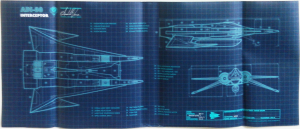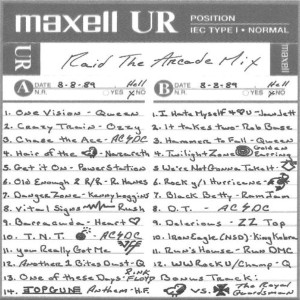I knew I didn't like Order of the Phoenix very much when Harry turned into a whiny, insufferable guy who felt sorry for himself for the first hundred pages of that book. It felt needless. On the one hand, there was a reason for it [the events from Goblet of Fire lead to Harry's chrysalis moment] and I could kind of understand that. On the other, there was absolutely nothing subtle about how Harry came across in those first hundred pages. The editors [who gave up at that point - they seemed to decide that JK Rowling was printing money, so thicker books couldn't hurt] could have handled this better. Could have made Harry a more subtle, believable character, but no. Harry turned into a brat.
I felt more-or-less exactly the same way about Armada's titular character Zack Lightman. On the one hand, I can sort of understand his anger management problems. On the other...it just feels so forced.
And that, in a nutshell, is the problem with Armada.

Where Ready, Player One [a book I fell /mostly/ head-over-heels for [note! clicking this link will a) open a new web page and b) land you at my private blog]] had a friendly, likable protagonist in Wade Watts [he only kind of self-destructs midway through the novel and it's not much fun to watch, but even then, that book's world reeled you right in, anyway.] this novel seems to want you to feel bad for it's protagonist and wallow with him in angst for no good reason other than "he's a teenager. That's how teenagers work." Oh. And his Dad died. An event he doesn't remember, but which makes him see red, anyway.
This problematic pacing happens nearly everywhere. In my review for Ready, Player One I noted that the romance subplot was kind of shoehorned into the grander scheme of things and it didn't really work well. It works even less here. Exactly one hundred pages in, Zach gets introduced to his love interest. He spends one meeting with her in a public space and the book then goes on to suggest that there's real chemistry there. It feels tacked on.
To be fair, though, that's a problem with every character in this novel. We get introduced to characters who become single-line pastiches of real people. There's a heavily-bearded geek guy who we learn [without any real subtlety] is gay. Boom, that's all the character development you're ever going to get out of that character. Or how about the gamer mom who's got three sons waiting at home for her? You want more of her backstory? Sorry. That doesn't exist. She does fancy one of the drone pilots she meets along the way, though. But that's about as far as her story arc goes.
The parts of the book that are genuinely interesting come way near the beginning and way near the end. Cline's clearly flirting with darker and edgier here, because the beginning is really about a giant conspiracy that might be true - and the main character feels that accepting the conspiracy as truth will make him vanish down a rabbit-hole of crazy. That part? Interesting. Let's stay there. Let's explore that. But nope. The conspiracy IS ALL TRUE! No rabbit hole of crazy here. Sorry, folks.
The ending does a similar trick. [But, alas, it's relegated to a single line as a footnote at the end of the book.] That one line is pretty interesting, because it mirrors the way Zack's father sees things in his son. Again. Interesting. But one line of exposition to set this up? It feels forced and rushed.
So, the plot for Armada is as follows: Zack's daydreaming in Math class, looking out a window when he spots a UFO from an MMO that he plays in real life. He thinks he must be crazy, but he learns, shortly thereafter, that this is not the case. It turns out that he's been in a training program that turns regular gamers into elite soldiers for an oncoming war against aliens.
This plot should be entertaining and interesting, but instead, Cline does what he does best: be media-referential. There's a lot of unsubtle nodding and winking as he tells us that this is also the plot of Ender's Game. Or that we should be thinking of The Last Starfighter while reading this.
That worked in Ready, Player One because the novel was grounded in those references. In this particular book, these nudge, nudge, wink, wink moments just fall flat.

The other problem here is that the world of the book is set in 2018. Our teenage protagonist has fallen madly in love with all these eighties things because his father did before him. Which, sadly, is just frustrating. I get it. Cline loves the eighties. But I can't swallow that a nineteen year old kid would love all those things as well. It just makes his characters feel that much less believable.
And that, right there, is the huge pity behind this book. Cline's clearly having a blast writing something that's a little darker and edgier. That much is clear. Even if his dialogue is terrible. [It really is. He barfs out clunkers like this: “You know, sort of like Obi-Wan, watching over Luke while he was growing up on Tatooine.”
“You’re a bold-faced liar like Obi-Wan, too!” I shot back. “That’s for sure.”
Ray’s smile vanished, and his eyes narrowed. “And you’re being a whiny little bitch, just like Luke!" This is a real conversation between two characters. It's pretty bad.] But it needs help and work and polish and better characters.
Do I recommend it? I'd have to go with "mostly no." If you're willing to overlook all the [quite serious] flaws here, then it's an OK beach read. But you're going to be left feeling sad and confused by the end - and not the good sad and confused that you feel when you've read an interesting book with a downer ending, either. You're going to feel sad and confused, because Ready, Player One was just such a fantastic blast and Armada is just all flat, all the time.

